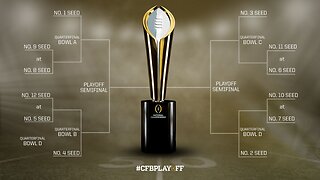How do dogs choose their favorite humans?
How do dogs choose their favorite humans?
Why does a dog become more attached to a person? The concept of attachment refers to an intense affective bond between two individuals, regardless of their species. In this sense, we tend to think that the fact that a dog feels attachment to us is always something positive and desirable, however, it is important to know that there are different types of attachment and that not all of them are beneficial in a relationship, because some of them have negative consequences for the individual. To better understand how dogs choose their preferred humans over other people, or rather, feel a stronger attachment for some than for other humans, let's look at each type:Secure attachment: the so-called secure attachment is the one that the dog establishes with its guardian or guardians when they teach it from respect, empathy and consistency, give it security, adequately cover its needs as a species and encourage its autonomy. In such a relationship, the animal knows it can fully trust its human companions, willingly collaborates with them, and actively seeks their support when it needs it, which is essential to ensure its well-being. If you are wondering how to tell if you are your dog's favorite person, here is the answer. This is certainly the kind of bond you should aim for when you bring a new furry member into your family, and your dog will undoubtedly prefer to spend more time with the person who meets these requirements.
Insecure attachment: Dogs who live with people who ignore or misinterpret their communicative signals, systematically punish them, prevent them from developing species-typical behaviors, or behave unpredictably, tend to develop an insecure attachment to them. In this case, the relationship between the animal and its guardian(s) is very unstable and, although there is also an affective bond that can become very strong, this is based mainly on fear and/or anxiety, generating in many cases a pathological dependence.
Naturally, within a coexistence group the dog can develop a different type and/or intensity of attachment to each human. To know what kind of bond your dog has with you, it is important to analyze and correctly interpret his behavior, because it is not enough that he obeys you, follows you or seeks your caresses to be able to affirm that he loves you more than any other person. If he responds with tension or nervousness to your requests, shows signs of calm or threat whenever you interact with him, has ambiguous or contradictory behavior (such as wanting to approach and move away from you at the same time) or is unable to remain calm when you are physically away from him, it is very likely that the dog feels insecure in the relationship. In this case, it is not that you are your dog's favorite person, it is that he has a pathological dependency for the above reasons.
If you suspect that your dog may have developed an inappropriate bond with you or a family member, or if you would simply like to improve your relationship with him so that you can truly become his favorite human, you can always contact a professional ethologist or dog trainer to help you understand him and work on your bond.
To ensure a real and healthy relationship of love and friendship with your dog, it is important that there is a clear channel of communication between the two of you and that, as a guardian or tutor, you educate yourself about the canine's needs. As social animals, dogs need to have contact with the outside world, meet other dogs and people, and be able to investigate their environment freely and safely. During his sensitive stage of socialization (from about three weeks to three months of age), you should ensure that the dog interacts gradually and positively with all kinds of objects and living things to prevent him from developing fears or behavioral problems during his adolescence. Remember that overprotection can lead to an inappropriate dependent relationship between the dog and his guardian.
Many guardians abuse punishment to educate their dogs because they believe that a dog should be "submissive and obedient. However, systematic punishment generates fear in the furry, and fear becomes the sole driver by which the dog responds to its guardian's requests. This kind of relationship can lead to serious physical and psychological problems for the animal, which could be avoided through a more consistent and respectful upbringing.
Despite all this, you should also keep in mind that each dog has its own personality based on both genetics and life experiences, which will make some dogs more independent and less inclined to show affection, while others will be more "clingy" and affectionate, which doesn't mean that they love you less.
-
 16:57
16:57
Film Threat
11 hours agoTHE CROW | Film Threat Reviews
3.1K10 -
 22:39
22:39
Misha Petrov
15 hours agoI Took The “Am I Fatphobic?” Quiz
5.6K16 -
 6:50
6:50
The Gun Collective
21 hours agoTop things WRONG with this gun...
9.04K11 -
 12:51
12:51
Liam Reid
12 hours ago9-Year-Old 250 2 Stroke vs Modern 4 Stroke!
23.9K17 -
 7:20
7:20
Adam Does Movies
15 hours agoBlink Twice Movie Review - A Thrilling Start For Zoë Kravitz
25.2K7 -
 1:37:26
1:37:26
Game On!
12 hours agoCollege Football 2024 Has ARRIVED!
31.1K5 -
 26:27
26:27
barstoolsports
21 hours agoCo-Workers Survive a Week Together At Summer Camp
56.5K5 -
 44:10
44:10
TampaAerialMedia
5 hours agoPigeon Forge 2024 Travel Guide
26.6K5 -
 38:28
38:28
Popcorn In Bed
1 day agoROCKY IV (1985) | FIRST TIME WATCHING | MOVIE REACTION
31K4 -
 6:46
6:46
Tactical Advisor
7 hours agoSniper Testing Insane Computer Monitor Shot
27.3K3